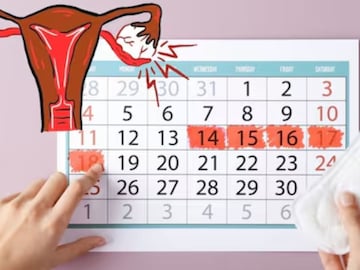Source :NEWS18 NEWS
Last Updated:January 16, 2025, 23:24 IST
Understanding how hormonal changes during menstruation impact digestion is the first step in managing period farts
Hormonal fluctuations during menstruation, particularly changes in estrogen and progesterone levels, can influence the digestive system, often leading to increased gas and bloating
Hormonal fluctuations during menstruation can often lead to an array of digestive discomforts, including bloating and increased gas. While this may feel inconvenient or even embarrassing, it is a natural part of how the body responds to the hormonal changes occurring during your cycle.
The Science Behind Period Gas
related stories
“Hormonal fluctuations during menstruation, particularly changes in estrogen and progesterone levels, can influence the digestive system, often leading to increased gas and bloating,” explains Dr. Ajeet Kr. Srivastava, VP-R&D Compliances at Pee Safe. “These hormonal changes may relax smooth muscles, potentially slowing digestion and causing trapped gas. Additionally, prostaglandins released during menstruation, which help the uterus contract to shed its lining, can also impact the gastrointestinal tract and contribute to discomfort.”
Mahipal Singh, Founder and CEO of Revaa, echoes this, adding, “Progesterone relaxes smooth muscle tissue, particularly those in the gastrointestinal system. This relaxation delays digestion and increases gas production, which adds to pain. Additionally, prostaglandins—hormone-like substances—cause muscle contractions in the digestive system, resulting in symptoms such as bloating, diarrhea, or constipation.”
Managing Period Gas Through Lifestyle Adjustments
Thankfully, there are several ways to manage these symptoms and ease discomfort during your period. Both experts recommend a combination of dietary and lifestyle changes to help alleviate bloating and gas.
“Staying hydrated and consuming a balanced diet rich in fiber may support digestion and ease bloating,” advises Dr. Srivastava. “Reducing the intake of gas-inducing foods, such as carbonated drinks, legumes, and processed snacks, may also be helpful. Gentle physical activities like walking or yoga may further support digestion and alleviate discomfort.”
Singh emphasizes the importance of avoiding foods that exacerbate water retention and bloating. “Diet is an important factor in addressing these disorders. Avoiding salty, sugary, or carb-rich foods that cause water retention and bloating can assist. To alleviate these symptoms, eat more fiber-rich meals, remain hydrated, and avoid fizzy drinks. Gentle movements, such as yoga or walking, can also help digestion and relieve discomfort during this period,” he says.
Other Remedies and When to See a Doctor
Over-the-counter remedies or natural supplements designed to support digestive health may also provide relief. Dr. Srivastava recommends mindfulness practices like deep breathing to manage stress, which is often linked to period-related digestive issues. “Simple changes, such as eating smaller, more frequent meals, may also make a noticeable difference. However, it is important to consult a healthcare professional for personalized advice, especially if symptoms are severe or persistent,” he adds.
Singh agrees, noting that while these symptoms are common, they should not be ignored if they interfere with daily life. “If excessive gas or bloating interferes with your regular activities, you should see a doctor. While these symptoms are common during periods, any underlying digestive disorders or imbalances should not be ignored. Your body’s signals require attention and care, so you may be comfortable and supported throughout your menstrual cycle.”
Proactive Steps for Comfort
Understanding how hormonal changes during menstruation impact digestion is the first step in managing these symptoms. By making small but meaningful adjustments to your diet and lifestyle, you can alleviate discomfort and support overall well-being during your cycle. If symptoms persist, don’t hesitate to consult a healthcare professional to explore further solutions tailored to your needs.
SOURCE : NEWS 18






